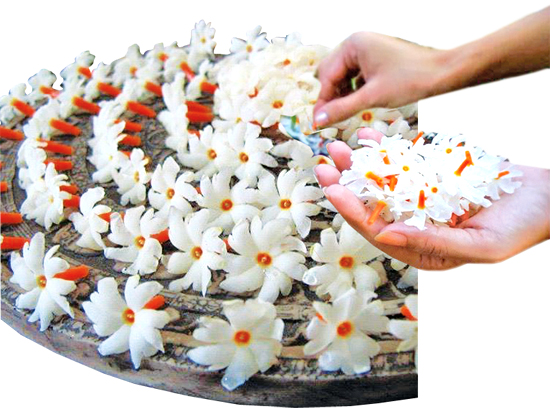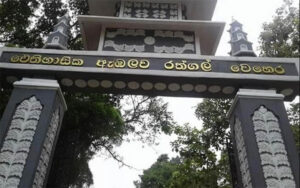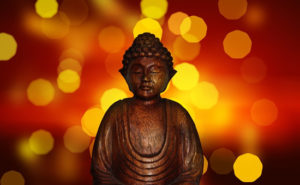
The Vassana season is the most productive period for the four bhikkhu, bhikkhuni, upasaka and upasika. It is during this period that all listeners who wish to make spiritual advancement practice the practice of meditation and practice meditation.
The Buddha taught the Vassana Period to provide guidance and guidance to those who are living a life of righteousness in this world and the next. The purpose of this article is to examine how a rainy season can be spent effectively in carrying out such charity work.
The rainy season is an important period for the survival of humans, animals, and trees. With the end of the summer season, the burning nature of the spring comes alive with the dawn of the rain. With the arrival of the rain, the rain clouds scattered across the sky are refreshing to behold. To meet the challenges of rain, people and animals use food and remedy. In the meantime, the monk has to face many challenges. In the Buddha’s time, the monks who lived in three robes, with their wet robes and wet body, had to spend time with the people and the lack of a proper place of residence. Accordingly, the Buddha taught the Vassana season to overcome the other challenges that can arise due to the Vassana and to create the necessary environment to deal with it.
Vassana season is the best time for a monk to improve his spiritual life. Traveling to different areas for religious activities is a limited time and can lead to a busy life. Therefore, the Buddhist monks have the opportunity to live in their dwellings and do their own spiritual activities and to engage in policy, study and religious activities. It will also provide guidance on how to improve the life of the subscribers, who will be hosting them during the season.
The rainy season only occurs once a year. It also occurs after completing various basics. That is to say that the name of a sub-ordained monk and his arrival in a proper manner must occur. The rest of the work is to be done with the commitment of the contributing party. Contributors will also have to make arrangements for a place to live or to renovate existing Bhikkus. Contributors don’t always get this opportunity. Therefore, the contributors should make the most of the rare opportunity for this sasana.
The monks who lived in the vicinity were able to reap the benefits of the four-fold service by contributing to it. The first monk to be given a robe as a raincoat for the coming monk. There is frequent mention in Buddhist literature about the people who have attained this pinnacle and have attained great pleasure. For example, a father born in a village built a house of dim wood and worshiped the Lord Buddha for seven years and served him with raincoats. By that, he received the divine resources of his birth. The lower castes are not born. The award was honored by everyone. Thus came various luxuries. Finally, Kankumathi Kingdom was born as King Sakvithi in the name of Sankha. The Saddharmalankaraka says that all these luxuries were obtained by the offering of robes. Such stories are mentioned in various places in Buddhist literature.
During the Vassana season, the monks as well as the lay monks can perform many different activities. The Buddhist monks who regularly visit the temple can earn Anusas by offering robes, alms and sannas. Sometimes the donors want to offer something like this but it is difficult to find a monk. But during the Vassana season, there is no need for the Buddhist monks to stay in one place. Therefore, taking care of the Buddhist clergy in the four-fold service is a sacred blessing. By treating Buddhist monks who live a life of sasana by practicing moral principles, the contributors also become part of the Sasana heritage and have the privilege of being a happy and happy person forever.
The monks who are being patronized by the donors on various occasions are exhorting the various contributors to make spiritual advancement. The Dhamma of the Buddha is not always heard. It is heard as a remarkable result of virtuous life. The number of people living in the world of today’s society is countless. But there are very few people who listen to and practice the teachings of the Buddha. Other people spend time with superstitions. Accordingly, we come to the Dhamma every day. The monks are constantly watching. This sacred footprint of the Buddha’s footsteps dwell in Sri Dharma
The statuesque. Therefore, there is no defect in the Buddha’s Dhamma. It is the duty of the Buddhist people to listen to the Dhamma and heal the life of this world and the Hereafter during this Vassana. The Buddha’s admonition is that the people who wish to improve the Dhamma, to repeat the meaning of the Dhamma heard and absorbed in the minds of the Dhamma should be practiced. In doing so, you become a person of spiritual purity.
A Buddhist is a disciple of the Buddha. Vassana season is the perfect opportunity for such a person to carry out the wrong things in his life. There are many spiritual qualities that a person who follows the Buddha’s teaching should have. These are the qualities of the Buddhist monks, the care of the Bhikkhus, the insults of the Bhikkhus, the respecting of the Bhikkus, the cultivation of virtues, the virtues of kindness, compassion, selflessness and morality. It is characteristic of an ungodly person to bear the name of Buddhist and to do lowly things. His journey is absolutely hell-bent. He becomes a physiologist. Vassana season can be used to become a better person out of these bad habits. The Mahavamsa points out that great bad guys like Dutugemunu and Parakramabahu knew and appreciated the value of the Vassana period.
After a successful rainy season, both clergy and clergy will have the opportunity to perform the ‘Kඨ ප පa’, the most valuable pinnacle of the Sasana, after three months. Time passes quickly. Accordingly, we use this time as a means to become a noble monk and to become a virtuous Buddhist with the right practices, to do spiritual deeds and to make spiritual progress.






